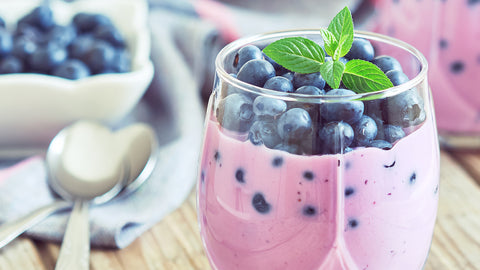Education

CBD is everywhere: gas stations, shopping malls, health food stores—almost anywhere you can spend money. But the big question remains: can it really improve my health? Along with that comes a host of other questions: is it safe? Does it have psychoactive effects? In this article we delve into these questions and more to give you a solid overview of CBD oil. We will cover the benefits and what science is saying about this controversial supplement.

Do you find yourself texting in the middle of a conversation? Do you catch yourself glancing at the GPS while navigating through traffic? If so, then you may be multitasking more than you think. In fact, if you own a smartphone at all, then you could be multitasking continuously without realizing it. A Business Insider article reported that we touch our phones on average 2,617 times a day (source.) A significant amount of that tapping and swiping is spent while doing other things.

It seems like every generation has fears about what technology can do to the brain. 50 years ago parents warned their children about the dangers of too much TV. 30 years ago it was video games. Now, we’re in the midst of a revolution where we’re more digitally connected than ever. While most of us who grew up in previous decades turned out ok, what about now? Does today’s technology really pose a threat to our brain health?

When you imagine your life at 90 years old, how do you see yourself? Do you envision sitting in a rocking chair watching television, or do you see yourself running foot races, climbing trees, and dancing? You might think it’s a strange question. Who in the world is that healthy when they’re 90 or 100 years old?

If you deal with frequent migraines or headaches, then you know that finding relief isn’t always a simple fix. While over-the-counter products like aspirin can help relieve pain in some cases, they don’t always work and taking them too often can create problems in and of itself.

Many people know that probiotics are good, but few actually know what they are and why we need them. Today, we'll take a quick look at probiotics, the sources where you can get them, and some of the most common signs that you need a probiotic.

If you’re struggling with cognitive issues, your first instinct is probably not to think about your gut health. However, as more scientific research unfolds, experts are finding that your digestion could play a major role in determining how well your brain functions.
Scientists refer to this as the “gut-brain” connection, or “gut-brain axis.” While this a cutting-edge area of study, the research coming forward shows a connection between the two that is more complex and amazing than we ever realized. In this brief article, we’ll look at how the two are connected and what you can do to maintain your gut health for optimal brain function.

If you’re a newbie to the subject of probiotics, you may be wondering where to start. Visiting the probiotic section of a health food store can be a daunting task, and you will likely find an entire wall (and cooler) full of different options. Often we hear about probiotics as though it were one type of bacteria. In reality, there are myriads of bacterial strains, and telling them apart can be a challenge. What’s more, some types of probiotic strains can be more or less beneficial for certain people.

Haven’t made your New Year's resolutions yet? It’s not too late! Your resolutions don’t have to be about just hitting the gym or losing weight, they can also focus on your brain health and overall wellness. The beginning of the year is a terrific time to reflect on what you want to accomplish and improve over the next 12 months. Here are a few brain-healthy recommendations that will serve you well all year:

You’ve probably heard serotonin talked about in the news or in commercials, especially when it comes to mood and pharmaceuticals. But what is serotonin? To put it simply, serotonin is a chemical produced inside your body. It’s classified as a neurotransmitter, which means it sends signals back and forth between different nerve cells.

As a rule, we as Americans greatly undervalue sleep. According to Dr. Mehmet Oz, “Sleep is the most under-appreciated health crisis in America.” Dr. Oz helped gather information from a whopping 20,000 Americans to survey the current state of Americans’ sleep health. His findings suggest that sleep is vastly neglected by a number of US citizens: 79% of Americans get less than the recommended 7-8 hours of sleep per night.

Everyone knows that exercise makes us look good and feel good. In fact, Dr. Frank Hu, professor of nutrition at Harvard once said, “The single thing that comes close to a magic bullet in terms of its strong and universal benefits, is exercise (source.)” That’s a pretty strong endorsement, and most would agree. But what a lot of us don’t realize is the massive effect that exercise can have on our brain.




